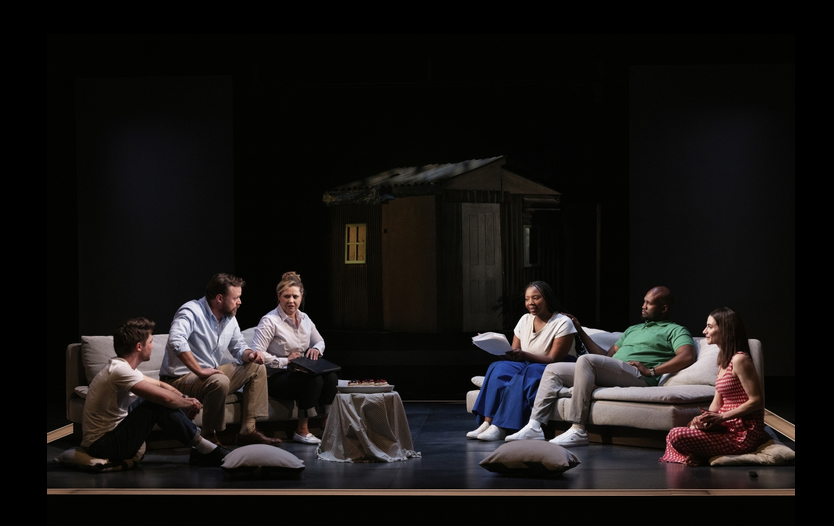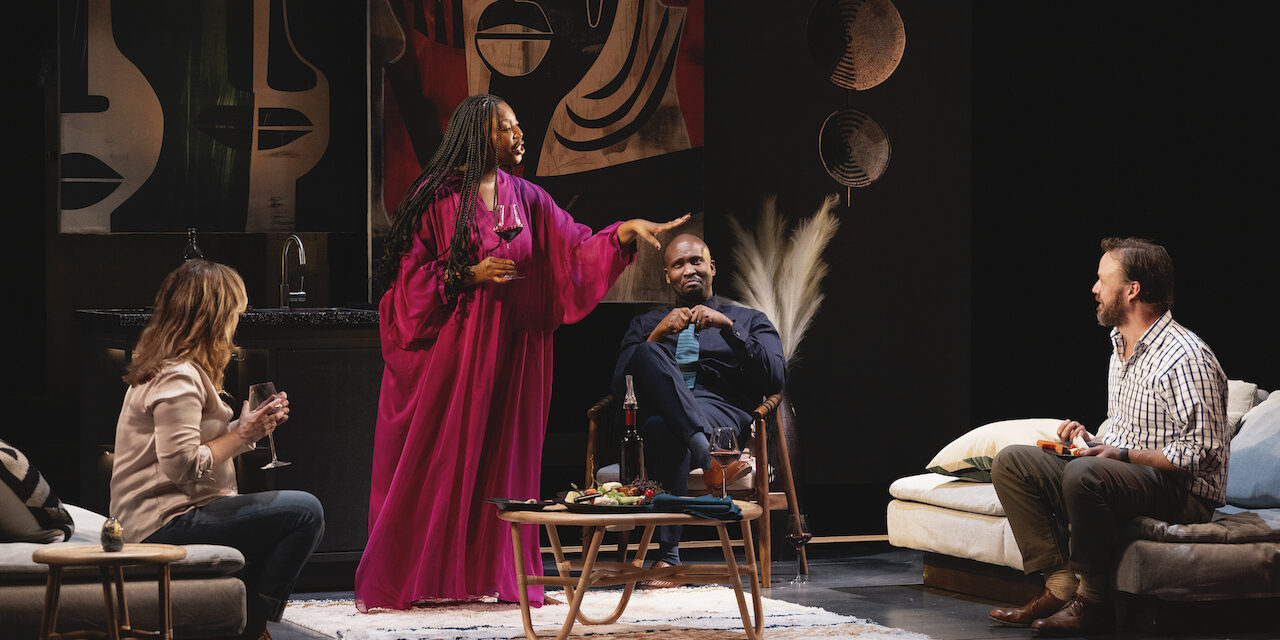
14 February – 8 March
Class-consciousness is, it seems, alive, well and kicking in South Africa. The present offering from Nancy Medina, written by Amy Jephta could have been written by Alan Ayckbourn, albeit in one of his more biting moods and feeling plucky enough to have a go at the subtleties of vestigial racism in the rainbow country dreamed of by Nelson Mandela. All the familiar cosy tropes about neighbourliness, house prices and wine (and cheese) snobbery are mere froth compared to the unspoken concerns that emerge when a tin hut appears adjacent to the gated community of Stillwater. The unspoken fear is that this is the thin end of a wedge that could allow Black Africans into the neighbourhood. Stillwater, if you hadn’t guessed, is a white enclave.
The tricky problem for established residents, Lynette (Olivia Darnley) and Christopher (Scott Sparrow) is that saying what your really mean is no longer an option. The enforced jollity with which Christopher and Lynette greet new neighbours Sihle (Sifiso Mazibuko) and his wife, Bonolo (Mimî M Khayisa) does little to hide their real concerns. Their problem is the more nuanced since their new black neighbours have all the necessary qualifications for living in Stillwater; they are successfully middle-class with middle-class aspirations and yet…and yet… That is the nub of the play: would they, could they ever be accepted with the continued existence of the kind of unspoken mindset that dare not speak its name?
Ms Jephta is good at wrong-footing her characters. Another, later newcomer to Stillwater, Andrew (Kai Luke Brummer) puts his foot in it when he mistakes Sihle for the tin hut owner and only just avoids giving two barrels of what we the audience sense would be a very unpleasant NIMBY tirade – to the acute embarrassment of his wife, Jess (Robyn Rainsford).
For their part Sihle and Bonolo just want to fit in. Neither are insensitive to what is going on, but whilst Sihle can put up with the two-facedness in the interests of enjoying the fruits of his success (at least at first) Bonolo is less inclined to do so. Yet she too is tested by the dilemma, but as her husband says, “You are not a revolutionary, you are a capitalist.” She too wants the comfortable life offered by Stillwater. However, getting rid of the tin hut needs the cooperation of all the residents, preferably with the legal instrument of eviction being signed and delivered to the squatters by them. Like Thomas More’s dilemma over signing Henry’s divorce papers, Sihle and Bonolo’s signing would lend a kind of non-racial legitimacy to the act that causes them some serious self-reflection.
The acting throughout is full of well-defined characters and Nancy Medina treads the delicate path between comedy and leaden proselytizing to deliver a thought provoking comedy, which is as much as any writer could hope for.
★★★★☆ Graham Wyles, 18 February 2025
Photo credit: Camilla Greenwell


